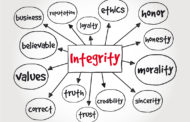What is Empathy?
By Michael Stern
Daniel Goleman, author of Emotional Intelligence, describes three types of empathy:

- Cognitive empathy means understanding the perspectives of others, including how they think about and see the world. We communicate more effectively by using language and mental models that are familiar to the other person.
- Emotional empathy means having a direct sense of how others feel because you feel it too. When we know how another person is responding to us, we can adjust our communication or behavior appropriately.
- Empathic concern, also known as compassion, means not only do you understand what the other person is thinking and feeling, you truly care about their experience and are genuinely moved to help if they are in distress.
Empathy is fundamental to healthy relationships and communication because it allows us to interpret, understand, and relate to a range of perspectives and emotions, even if they are not our own direct experience.
How to Build Empathy
The root of empathy is wanting to understand another person. (Not just making them believe you want to understand them.)
In order to truly understand someone, we need to be curious about them and have a genuine interest in their experience.
Two simple (not necessarily easy) practices can help you develop greater empathy: ask questions and listen attentively.
Asking questions can help you understand the other person’s point of view, and how they understand the world in their own terms.
Paying attention to their responses and using that information to inform what you then say or do is a way to demonstrate empathy.
Ultimately, the key questions to keep in mind are: What is it like to be this person? What are their goals and motivations? What need(s) are they trying to meet? And how can I support them?
Empathy Across Differences
Empathy is an essential competence of emotional intelligence. But it can be hard to have empathy for someone who we disagree with, or who has hurt or offended us.
Our country is experiencing tremendous difficulty, and yet the cultural conversation is deeply polarized and full of blame. Practicing empathy for someone “on the other side” can be a radical act.
We often think we understand somebody when in reality we have simply put them in a mental category that feels comfortable for us or satisfies our curiosity.
But if we want to truly understand others even when it’s challenging to do so, the key is to acknowledge and accept our own emotions towards them first.
It’s important to remember that having empathy for someone does not mean we agree with them, condone their behavior, or are required to maintain a relationship with them.
By balancing empathy for others with empathy for ourselves, we can aim to meet our own authentic needs while remembering that others are doing the best they can to meet their needs as well.
From that perspective we can remain open to making meaningful connections with others and helping them whenever possible, while still maintaining healthy boundaries.
Self-Empathy
We all make mistakes. We all hurt others. We’re all learning as we go.
The more we are able to replace self-criticism with self-acceptance and self-understanding, the easier it becomes to expand our circle of understanding and care to include others.
However, many of us tend to be harder on ourselves than on anybody else. Our internal self-dialogue often consists of things we would never say to someone we care about.
In this case it can be helpful to first bring to mind someone who we find it easy to have empathy for (for example a child). Getting in touch with our genuine care for others can make it easier to redirect those feelings towards ourselves.
Self-Reflection & Practice
Think about a time when someone helped you.
Remember the care and concern they had because they saw that you could use some extra support.
What did they see in you? How did they help you?
How did they “tune in” to you, especially your unspoken emotions?
What did it feel like to be on the receiving end of this kind of interaction – to be seen, understood, and cared for?
When is the last time you showed empathy for another? How did it make you feel? How do you think it made them feel?
Think of someone in your life who could use an extra bit of empathy right now. Set an intention to connect with them, be genuinely curious about their experience, give them your full attention, and see if there is any way you can be of help.
Michael Stern is a certified Emotional Intelligence coach and volunteer contributor to The West End News. Visit www.IntegralAlignment.com





